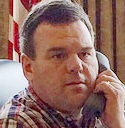By Bob Allen
About half of Americans and a quarter of Protestant ministers believe clergy should say “I don’t” to the tradition of solemnizing marriages as agents of the state, according to a new poll by LifeWay Research.
The research arm of LifeWay Christian Resources released results of a survey Dec. 10 showing 49 percent of Americans believe religious weddings should not be connected to the state’s definition and recognition of marriage.
More than a third (36 percent) believe clergy should no longer be involved in the state’s licensing of marriage. Support for clergy remaining involved in civil marriage is higher among pastors — 24 percent believe they should get out of the marriage business while 71 percent disagree.
The survey comes at a time when growing acceptance of same-sex marriage is causing many conservative clergy to rethink their role as a wedding officiant acting on behalf of the state. More than 300 people recently signed a pledge sponsored by First Things magazine committed “to disengaging civil and Christian marriage in the performance of our pastoral duties.”
“We will no longer serve as agents of the state in marriage,” the signers said. “We will no longer sign government-provided marriage certificates. We will ask couples to seek civil marriage separately from their church-related vows and blessings. We will preside only at those weddings that seek to establish a Christian marriage in accord with the principles articulated and lived out from the beginning of the Church’s life.”
 Signatories include Kyle Henderson, pastor of First Baptist Church in Athens, Texas, who with two other pastors convened a meeting on the topic on the eve of the Baptist General Convention of Texas annual meeting Nov. 16-18 in Waco.
Signatories include Kyle Henderson, pastor of First Baptist Church in Athens, Texas, who with two other pastors convened a meeting on the topic on the eve of the Baptist General Convention of Texas annual meeting Nov. 16-18 in Waco.
Henderson told church members through an online newsletter he hopes to begin a process to “help extract the church from a no-win situation.”
“We are attempting to get ministers to stop signing marriage licenses issued by the state,” he said. “I have come to the conclusion that the church and the state have come to a parting of the ways.”
Henderson said for many years it was convenient for pastors to function in the role of officiating weddings and for the state to recognize the couple as legally married, but it was always a bad idea. He said if there is any lesson to be learned from Baptist history, it’s that the mingling of church and state is always “a recipe for disaster.”
Henderson says he stopped signing marriage licenses about a year-and-a-half ago. He now asks couples to sign their vows to certify their covenant to each other and God and then on their own go to register their marriage and the state.
Ed Stetzer, executive director of LifeWay Research, said because the question has never been asked before, he doesn’t know if support for such views is growing, but he was surprised by the large minority of pastors who are ready to stop saying “by the power vested in me” at weddings.
Russell Moore, president of the Ethics and Religious Liberty Commission of the Southern Baptist Convention, says he hasn’t reached that point.
“[I]f the state ever forced congregations or religious institutions to solemnize unions that are not, in our view, marriages, we would be compelled to obey God and conscience and not the bureaucrats,” Moore said in a First Things article in April.
“When a congregation certifies a biblically married couple to be also civilly married, the congregation is not affirming the state’s definition of marriage,” Moore explained. “Instead, the church is witnessing to the state’s role in recognizing marriage as something that stands before and is foundational to society. We are bearing witness to the fact that these unions are the business of the larger society in ways other unions aren’t.”
— With reporting by Bob Smietana of LifeWay Christian Resources.
Previous stories:
Officials get mixed messages about right of conscience in marriage laws
Bad idea for ministers to sign marriage licenses, pastors insist
Pastors want covenant certificates to replace marriage licenses
